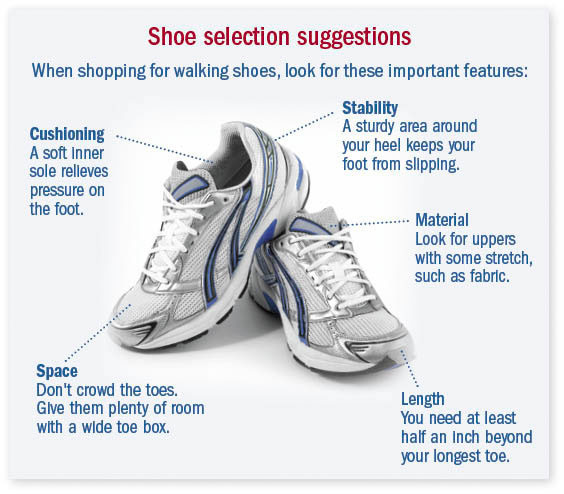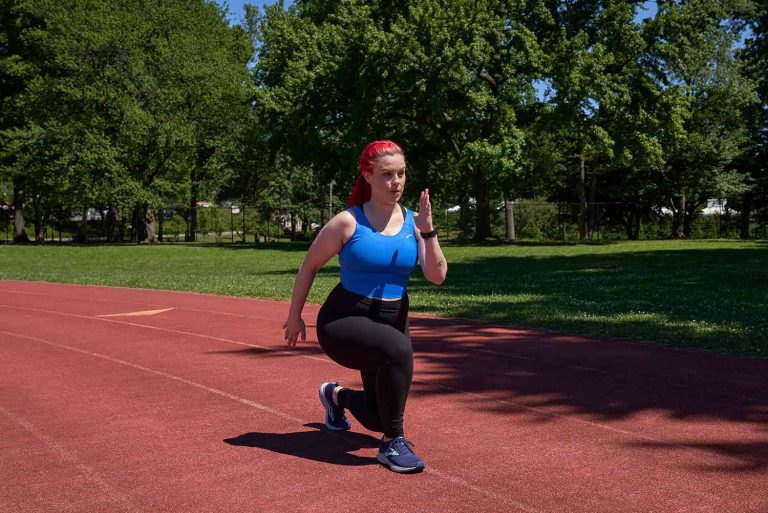When is the Best Time to Walk for Diabetes: Optimal Strategies Revealed
The best time to walk for diabetes is after meals or in the morning before breakfast. Walking after meals can help lower blood sugar levels, while morning walks can improve insulin sensitivity throughout the day.
Regular physical activity, such as walking, is essential for managing diabetes. It helps control blood sugar levels, reduces the risk of heart disease, and enhances overall wellbeing. Finding the best time to walk for diabetes depends on individual preferences and schedules.
Understanding the impact of walking at different times of the day on blood sugar levels and insulin sensitivity is crucial for effective diabetes management. By incorporating a consistent walking routine into daily life, individuals with diabetes can experience improved blood sugar control and long-term health benefits. We’ll explore the best times to walk for diabetes and the potential impact on managing the condition.

Credit: www.abbott.com
Morning Walk Benefits
Walking is a simple yet effective exercise that can have a significant impact on managing diabetes. When it comes to determining the best time to walk for diabetes, many experts agree that a morning walk can offer various benefits that contribute to better blood sugar regulation, increased energy, and improved metabolism. In this article, we will explore the morning walk benefits for individuals with diabetes.
Regulation Of Blood Sugar Levels
One of the key advantages of taking a morning walk for individuals with diabetes is its positive impact on blood sugar levels. Engaging in physical activity, such as walking, stimulates the muscles to effectively use glucose from the bloodstream for energy. Regular morning walks can help lower blood sugar levels and decrease insulin resistance, allowing for better glycemic control.
Moreover, research has shown that walking in the morning can have a prolonged effect on blood sugar regulation throughout the day. By kick-starting your day with a brisk walk, you can optimize your body’s insulin sensitivity, making it easier to manage blood sugar levels throughout the day.
Boost In Energy And Metabolism
In addition to its effect on blood sugar regulation, walking in the morning can provide a significant boost in energy and metabolism. Starting your day with physical activity helps to awaken your body and mind, increasing alertness and overall energy levels. This enhanced energy can carry over throughout the day, improving productivity and mental focus.
Furthermore, a morning walk activates the metabolic processes in your body, promoting calorie burning and weight management. Walking at a moderate pace in the morning can help increase your metabolism, allowing for more efficient calorie utilization throughout the day. Regular morning walks can contribute to weight loss or weight maintenance, which is crucial for managing diabetes.
In conclusion, incorporating a morning walk into your daily routine can have numerous benefits for individuals with diabetes. It not only helps regulate blood sugar levels but also provides an energy boost and boosts metabolism. By prioritizing a morning walk, you can take a proactive approach to your diabetes management and enhance your overall well-being.

Credit: www.cell.com
Afternoon Walk Benefits
An afternoon walk brings various benefits, especially for individuals managing diabetes. Walking during this time could have a positive impact on blood sugar levels and overall well-being. Let’s explore some of the benefits of taking a stroll in the afternoon.
Promotes Healthy Digestion
Walking in the afternoon can help improve digestion by aiding the movement of food through the digestive system. It can also reduce bloating and discomfort. For individuals with diabetes, maintaining healthy digestion is crucial for regulating blood sugar levels.
Stress Relief
An afternoon walk serves as an effective stress-relieving activity. It helps reduce anxiety and tension, which are common among people managing diabetes. By engaging in regular walks, individuals can positively impact their mental well-being and contribute to better blood sugar management.
Evening Walk Benefits
Evening Walk Benefits:
Improved Sleep Patterns
Regular evening walks can improve your sleep patterns by promoting relaxation.
Lowering Blood Pressure
An evening walk can help in lowering blood pressure naturally and effectively.
Choosing The Right Time For You
When it comes to managing diabetes, incorporating regular physical activity like walking into your daily routine is essential. But when is the best time to walk for diabetes? The answer may vary depending on your individual circumstances and needs. In this article, we will explore some factors to consider when choosing the right time for you to walk, including your personal schedule and consulting with a healthcare professional.
Considering Personal Schedule
When determining the best time to walk for diabetes, it is important to consider your personal schedule. By finding a time that works well with your daily routine, you are more likely to stick to your walking routine consistently.
If mornings are typically busy for you, perhaps an afternoon or evening walk would be more feasible. On the other hand, if you find that you have more energy and motivation earlier in the day, a morning walk might be the perfect way to start your day.
When choosing a time, think about any potential barriers or distractions that may arise throughout the day. By selecting a time when you are less likely to be interrupted or sidetracked, you can optimize your walking time and ensure it becomes a regular habit.
Consulting With A Healthcare Professional
Prior to starting any new exercise regimen, including walking for diabetes management, it is crucial to consult with a healthcare professional. They can provide personalized advice based on your specific medical condition and any existing medications or treatments.
A healthcare professional will be able to assess your health status and provide recommendations on the most suitable time for you to walk. They may consider factors such as your blood sugar levels, insulin levels, and any potential interactions with other medications you are taking.
Furthermore, a healthcare professional can help you set realistic goals and tailor your walking routine to your individual needs. They can guide you on the ideal duration and intensity of your walks, ensuring you can achieve maximum benefits without putting excessive strain on your body.
Remember, walking is a great form of exercise for diabetes management, but it is important to approach it in a safe and responsible manner. By considering your personal schedule and consulting with a healthcare professional, you can determine the best time for you to walk and make this activity an integral part of your diabetes management plan.

Credit: www.amazon.com
Frequently Asked Questions Of When Is The Best Time To Walk For Diabetes
Should Diabetics Walk Before Or After Meals?
Walking after meals is beneficial for diabetics. It helps regulate blood sugar levels and improves insulin sensitivity.
Does Morning Walk Reduce Blood Sugar?
Yes, morning walk can help reduce blood sugar levels as exercise increases insulin sensitivity. It also aids in managing weight, which is crucial for controlling blood sugar. Additionally, physical activity helps lower blood sugar levels by allowing the muscles to use glucose for energy.
How Many Hours Should A Diabetic Walk?
A diabetic should aim for at least 30 minutes of walking per day to manage blood sugar levels effectively.
When Is The Best Time To Exercise When You Have Type 2 Diabetes?
For individuals with type 2 diabetes, exercising in the morning can help stabilize blood sugar levels throughout the day. It’s best to consult with a healthcare provider to determine the optimal time for exercise based on individual needs and preferences.
Conclusion
Finding the best time to walk for diabetes can vary for each individual. Whether it’s after meals or at specific times, consistency is key. Regular physical activity, adapted to personal needs and preferences, can significantly help manage blood sugar levels.
It’s essential to consult a healthcare provider for personalized exercise recommendations.







